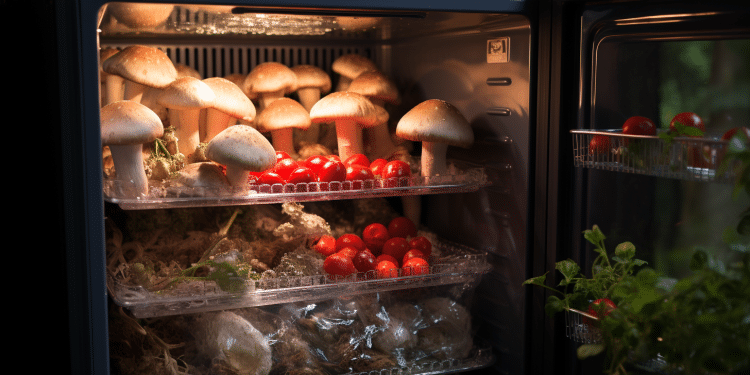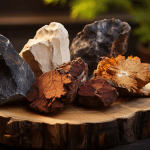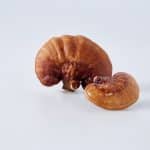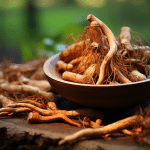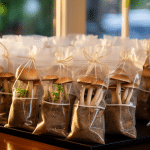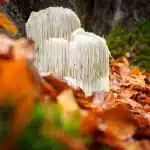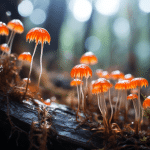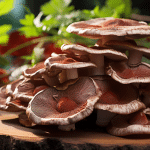Mushrooms are great for you and easy to cook, although can you freeze mushrooms to save them for later?
So, Can You Freeze Mushrooms?
Yes, you can freeze mushrooms, and there are multiple ways to do so. Freezing is a great option if you get an excess of mushrooms you would like to store for later. Mushrooms can be frozen in their raw state.
But to get the best texture, you will want to parboil or saute them first. Freezing them separately on trays before bagging them up prevents them from sticking together, allowing you to only thaw what you need at a time. Mushrooms are a tasty, nutrient-dense addition to meals, providing plenty of added flavor.
But there is a process to be followed while freezing them if you want to have the best results. In this article, I am going to teach you different methods of freezing mushrooms. Including using them raw, steamed, and grilled. I will also explain how to freeze or pickle mushrooms if your freezer space is tight.
Learn more: Can babies eat mushrooms?
How To Freeze Mushrooms
There are several reasons you may wish to freeze mushrooms. Maybe you found a good deal in the grocery store that seemed too good to pass up, so you bought several pounds of mushrooms. Maybe you foraged around for wild mushrooms, and found an abundant supply of wild morels and chanterelles. When you are foraging wild mushrooms, be sure to identify them before freezing.
Learn more: Best mushrooms for diabetes
If you are new, you may have some misgivings about the difference between toadstools and edible mushrooms. Or maybe you tried growing mushrooms yourself and produced far more mushrooms than expected.
Whatever your reasons, if you are not going to use up your entire mushroom supply before they start going bad, freezing them is a great way to preserve them and not have to throw them out. Fresh mushrooms only last a week or so in the fridge. So, if you think that you are not going to eat all of them in that time frame, it is best to plan ahead and start thinking about freezing a few. It is best to freeze mushrooms when they are as fresh as possible.
If you freeze mushrooms that are one to two days from going bad, they will also look like this when you thaw them again. So choose mushrooms that seem and smell fresh for the freezer. Toss out those that have developed black spots. When buying mushrooms, look for a crisp, woodsy scent
They shouldn’t smell moldy or musty. Their texture should feel firm, not spongy. They should not appear discolored or bruising.
For larger mushrooms, try to find ones that have their gills still closed, not black, when you purchase them. In the short-term, until you can freeze them, keep them in a paper bag in your fridge to absorb any excess moisture that they give off. Or, if they are come pre-wrapped by the grocery store, you can leave them just like that until you are ready to freeze them.
Clean Your Mushrooms Before Freezing
No matter how you are freezing the mushrooms, you will want to get your mushrooms cleaned before. It is going to be almost impossible to get rid of all the mud and other gunk out of your mushrooms after they are frozen. So, you want to freeze them in a condition where they are ready to go straight into your pot or pan with no extra work. Most chefs will tell you to avoid washing mushrooms. Mushrooms tend to soak up lots of water, and that makes them soft and slimy.
Instead, use a coarse brush to get rid of any visible soil. You may want to cut off the ends of stems too, since they are generally hard and woody, and generally are not eaten anyway.
Tips for Freezing Raw Mushrooms
The easiest way to freeze mushrooms is simply by freezing them raw, with no extra prep. You can either slice them up into slices, or freeze them whole. You could just toss your mushrooms in the freezer bag, but that does not give you the best results. Instead, place mushrooms onto a parchment-lined tray, then transfer the whole tray to the freezer. This will allow them to individually freeze.
Then, you can remove your frozen mushrooms and store them in a freezer-safe bag. Try to get all of the extra air out of the bags. Dry mushrooms such as Maitakes (hens of the woods) freeze best when uncooked, as opposed to the wetter varieties. Frozen mushrooms that are frozen raw are best if you are going to use them in soups, casseroles, or stews.
Basically, any dish where mushrooms are not going to be the main star, and where texture does not really matter. Because mushrooms are largely made up of water, they tend to mush if you freeze them raw. The flavor will still be excellent, but the texture might leave a little something to be desired if you are eating them raw.
Fortunately, there are some other techniques that can be used prior to freezing that can yield better results. The ones below will produce more versatile frozen mushrooms, which you can use throughout the kitchen in many different ways.
Steaming Mushrooms Before Freezing
Blanching is the process of cooking mushrooms part way using steaming water, prior to freezing. The amount of time you need to blanch your mushrooms will vary depending on the size. So, your best practice is to first sort your mushrooms based on their size. You don’t need to order them perfectly, but try to break up large mushrooms and smaller mushrooms into distinct groups.
For mushrooms larger than an inch in diameter, you will want to chop them in quarters or slices, since the rapid blanching won’t fully cook them. When you are ready to blanch the mushrooms, put them into the steamer basket, and set it over a pan of boiling water. Whole mushrooms will take about five minutes to blanch. Smaller button mushrooms, or mushrooms you cut in quarters or slices, will take about three minutes.
After steaming the mushrooms, immerse them in a bowl of ice water for about as long as you steam them. Then strain out as much water as possible, and store in an airtight container or in freezer bags.
Removing as much of the air as possible helps to prevent freezer burn. Blanched or steamed mushrooms will not get as wet or smushy when thawed, as opposed to mushrooms that were frozen raw.
They will be wonderful topped on a pizza, or incorporated into a quiche or pasta dish. They will taste best if you use them within one year after freezing. If you are adding frozen blanched mushrooms to stir-fry, aim to add just a couple at a time. This will keep the pan from cooling too much.
For dishes you are baking, mushrooms are generally best added when still frozen. They will thaw and warm in the oven as other ingredients are cooking. For foods such as soups or stews, which are not going in the oven, throw in the frozen mushrooms about twenty minutes before the recipe is done cooking.
Saute Mushrooms Before Freezing
Sauteeing is cooking mushrooms in some butter or warm oil prior to freezing. You can also add whatever other spices, such as salt and pepper, that you want when you sauteeeing them.
Although, I like to leave them a little plainer, that way you can use them in just about any recipe. Sauteeing mushrooms will retain their tougher texture compared to either steamed or raw mushrooms, and is my preferred method of cooking them prior to freezing. You can use them in any way that you normally would use mushrooms, such as pizza, in a stroganoff dish, stir-fry, quiche, stew, or in any other recipes.
Either whole mushrooms or chopped mushrooms take about four minutes to cook. You want to get them nearly completely cooked, but not completely. Most of the liquid should have boiled off of the skillet by the time they are done.
Allow sauteed mushrooms to cool on a plate lined with paper towels until near room temperature. Then, you can put them in containers or in sealed bags, trying to remove as much air from the containers as possible so that they stay fresh. Just like with the raw mushrooms, you can also freeze the mushrooms that you cooked separately in the microwave in quick jars. Place the mushrooms onto a tray lined with parchment paper and freeze, and then pack into quart-sized freezer bags after freezing. You can pick them up with a spatula if they got stuck on the parchment paper at all.
If you did not individually freeze the mushrooms before packing, leave about half an inch of space above the top of any containers, because mushrooms may expand slightly as they cool. I highly recommend freezing mushrooms separately, or else you could get a large, solid mass if they freeze all together. You want to be able to only thaw out what you need, rather than having to pull a whole brick of mushrooms out of the freezer. Use your steamed mushrooms within nine months after you freeze them.
